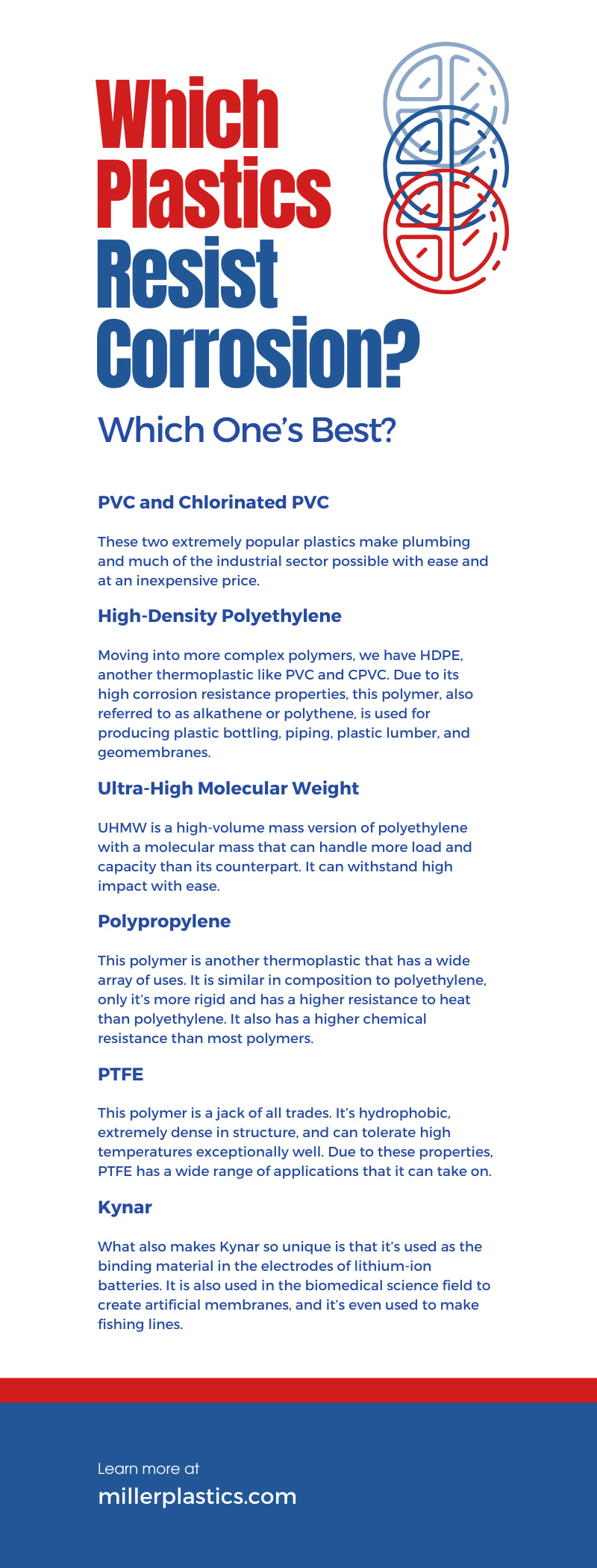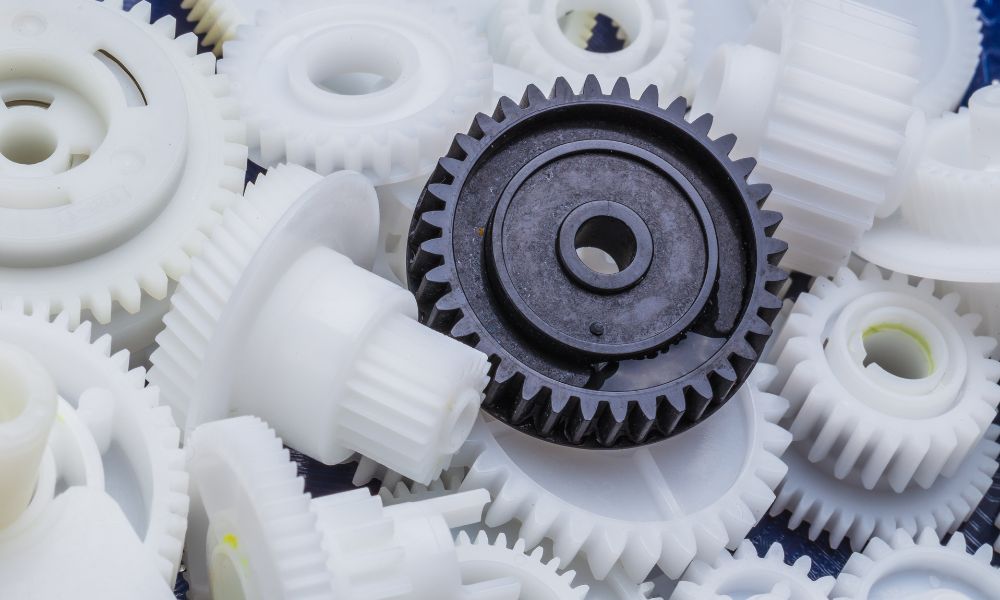Not all plastics are created equal; some have certain characteristics that outmatch others. For this reason, they are used for different job scopes. To determine which plastics resist corrosion, we must look further into the stress they are put under. By examining their functions, we can see that they are designed to prevent corrosion, as needed, to complete specific tasks that require them to perform their function without sacrificing their integrity. To determine which plastics resist corrosion and which ones are best for certain assignments, we need to break them down and look at them closely to find out more about them.
PVC and Chlorinated PVC
These two extremely popular plastics make plumbing and much of the industrial sector possible with ease and at an inexpensive price. PVC is the third most utilized polymer in the world and has earned its place in the construction and plumbing industries. As it can replace rubber in many aspects, it’s also used for jobs such as electrical cable insulation, flooring, leather, phonograph records, and signs. By using plasticizers, PVC is made softer for these specific applications. CPVC is the chlorinated version of PVC known as thermoplastic. It has greater flexibility than PVC, which makes it more durable and allows it to withstand elevated temperatures better. These plastics are perfect for cold and hot delivery pipes and holding potable water, which is why they are commonly seen in the plumbing industry.
High-Density Polyethylene
Moving into more complex polymers, we have HDPE, another thermoplastic like PVC and CPVC. Due to its high corrosion resistance properties, this polymer, also referred to as alkathene or polythene, is used for producing plastic bottling, piping, plastic lumber, and geomembranes. You will often see a recycling symbol containing the number two on HDPE plastic products. This marking, known as a resin identification code, signifies that the product is recyclable up to two times in its life. As one of the most consumable plastics, everyday household plastic items are created using this particular polymer. Anything from cleaning material containers to food grade storage and food grade wrapping items consists of polyethylene.
Ultra-High Molecular Weight
UHMW is a high-volume mass version of polyethylene with a molecular mass that can handle more load and capacity than its counterpart. It can withstand high impact with ease. Its high density also makes it resistant to acids, especially concentrated acids, alkaline substances, and even organic solvents. It’s so strong that it holds its place as the toughest thermoplastic ever known. Because it is self-lubricating and has low absorption, it has a high resistance to abrasion. In fact, it’s fifteen times stronger than carbon steel when it comes to abrasion resistance.
Polypropylene
This polymer is another thermoplastic that has a wide array of uses. It is similar in composition to polyethylene, only it’s more rigid and has a higher resistance to heat than polyethylene. It also has a higher chemical resistance than most polymers. This polymer is the second most produced and utilized in the world. As it has a lower density than other polymers, it offers many mechanical benefits, making it highly resistant to fatigue and an economically sound choice. For this reason, it’s often used to build ropes, carpets, tape, clothes, and camping equipment. It’s also been proven to have hydrostatic properties making it perfect for materials in the marine sector, such as ropes and ship parts.
PTFE
This polymer is a jack of all trades. It’s hydrophobic, extremely dense in structure, and can tolerate high temperatures exceptionally well. Due to these properties, PTFE has a wide range of applications that it can take on. However, it’s infamously known for being unable to stick to surfaces. It will not rust or decompose, so it doesn’t age or become brittle. It works well for electrical insulation. It resists weathering, and it can be made for food-grade functions. Lastly, it’s highly affordable as it has one of the best performance-to-price ratios. Most often, commercialized PTFE has been used as Teflon. This ideal material, with a high chemical, thermal, and electrical resistance, makes for excellent cookware—where it is being used to a high degree. In fact, as it is one of the most durable substances to cook with, Teflon is very popular in cooking circles.
Kynar
One of the most user-friendly polymers there is, Kynar combines all the previously outlined traits of the other polymers and outshines the rest in many ways. First, it is UV resistant, which is huge. This means you can keep it out in the sunlight without fear of it fading or decomposing. Because of its UV resistance, it is also resistant to radiation, flames, and smoke.
It has the ability to be welded, through plastic welding processes, which improves its ability to be further fabricated. It also holds high electrochemical stability making it resistant to many chemicals, electrostatic, and chemical frequencies. Finally, it is rated to have a high resistance to abrasion, much like the other polymers listed. All these characteristics easily make Kynar one of the top-shelf varieties of plastics out there—and it gets better.
What also makes Kynar so unique is that it’s used as the binding material in the electrodes of lithium-ion batteries. It is also used in the biomedical science field to create artificial membranes, and it’s even used to make fishing lines.
It’s hard to say which polymer can outshine the next if you have them competing to see which is the best because they are all designed for more than one purpose. These plastics are all so completely different from one another, and in what they specialize, that if you’re to ask yourself which plastics resist corrosion and which is best for your company or project, you might have a hard time answering that question. To make your decision a bit easier, we recommend calling custom plastic parts manufacturers for quotes. To learn more about corrosion-resistant plastics, and for all your plastics-related needs and questions, visit our website, send us an email, or give us a call.





